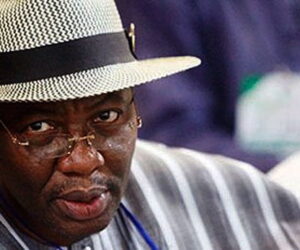Aiming to achieve another lasting milestone, the Federal Competition and Consumer Protection Commission (FCCPC) penultimate Monday set January 5, 2026 deadline for full compliance with the Digital, Electronic, Online and Non-Traditional Consumer Lending Regulations 2025.
That is, after helping to recover over N10 billion for aggrieved consumers in six months, following complaints of infractions in Nigeria’s market space.
The new FCCPC regulation came into effect on July 21, 2025 under the aegis of the Federal Competition and Consumer Protection Act (FCCPA) 2018. It aims – among other benefits – to promote fairness, transparency, and accountability across Nigeria’s growing digital lending market.
The Executive Vice Chairman/Chief Executive Officer of the Commission, Mr. Tunji Bello, while allaying fears over the workability of the regulation, assured that the additional instrument – Guidelines on the Digital, Electronic, Online and Non-Traditional Consumer Lending Regulations 2025 made under Sections 17 and 163 of the FCCPA – will provide the agency with the requisite armament for seamless operations.
Mr Bello said this document provides practical direction for lenders and intermediaries, explains the documentation required, and introduces updated Forms 1 and 3, based on feedback received from the stakeholders. He said applicants with pending submissions may provide any additional information required under the new guidelines without waiting for a formal request.
He said the Commission will continue to process applications promptly and maintain a transparent review process; and explained that “full compliance is not only a legal requirement but an important step in protecting consumers and ensuring that the sector continues to grow in a fair and responsible manner.”
“Operators have had ample time to adjust to the Regulations and the additional guidance now provided. We expect all obligations to be met before the deadline,” he noted while assuring that the affected operators, including lending platforms, service partners, and intermediaries, are expected to complete their compliance obligations by 5 January 2026.
Enforcement will begin immediately after the deadline as measures may include restricting non-compliant entities from operating, directing partners or platforms to cease dealing with them, and applying other sanctions permitted under the law.
For easy follow up, copies of the Guidelines, Forms as well as Frequently Asked Questions (FAQs) are available on the Commission’s website at www.fccpc.gov.ng, including through enquiries at FCCPC offices nationwide, or via other official channels provided on the website.
Ostensibly, this strategy is to commit FCCPC to promoting responsible digital lending practices that protect consumers and support confidence in the financial technology sector.
Indeed, the strategic federal government agency led by the media icon, lawyer and administrator, is raising the bar and igniting consumer confidence with striking reform and administrative initiatives. Between March and August 2025, the FCCPC recovered over N10 billion for aggrieved consumers in Nigeria.
The agency listed the banking, Fast Moving Consumer Goods (FCMG), and fintech sectors as leading the top 10 sectors from where it received the highest number of consumer complaints during the period. From available statistics, the sectors by number of complaints, showed the banking sector with 3,173 issues, followed by FCMG 1,543; fintech 1,442, and electricity 458 complaints.
Other notable sectors included e-commerce 412, telecommunications 409, retail/wholesale/shopping 329, aviation 243, information technology 131, and road transport and logistics 114.
The banking sector is the dominant source of consumer complaints, both in volume and financial exposure, highlighting recurring issues in loan deductions, account charges, and transaction disputes, and reflects public reliance on FCCPC to intervene in systemic financial service challenges.
In order to stay committed to tackling unfair trade practices, promote transparent market conduct, and safeguard consumer rights in the country, the Commission has adopted regular and routine engagements with key stakeholders with the view to connecting with those who make Nigeria’s markets work.
At a forum in Abuja recently, Mr Bello said the market engagements align with President Bola Tinubu’s Renewed Hope Agenda, which prioritises economic reform, consumer empowerment, and inclusive growth.
He said: “Across the country, including right here in the FCT, we are encountering practices that are not just unfair, but illegal.
“Let me ask, how many of you have ever bought rice, beans, or garri only to get home and find out that the quantity sold to you is not what was promised?
“How many of you have purchased an item with a ‘new’ label, only to find it expired, diluted, or repackaged?
“How many traders here have faced losses because someone else is selling fake versions of your goods at lower prices?
“These are not just bad business practices, they are illegal. They cheat consumers and punish honest traders. That is why the FCCPA 2018 empowers the FCCPC to address them head-on.” Bello stressed that FCCPC had already commenced surveillance and enforcement across several markets.
In April 2025, the FCCPC operatives sealed several shops in Utako Market, Abuja, after uncovering deceptive practices involving the re-bagging of illicit rice as foreign brands.
The job is under the Inter-agency Market Monitoring Taskforce to combat counterfeits and ensure consumer safety and welfare in four key pilot markets within the FCT, including Wuse Market, Garki International Market, and Garki Modern Market.
Some of the infractions and unlawful practices being investigated by the Commission include the re-bagging and mislabelling of food items, which occurs when old, expired, substandard, or unsafe goods are repackaged and falsely presented as fresh, genuine, or popular brands.
The unwholesome practice constitutes fraud, and is widespread in the sale of staples such as rice and other fast-moving consumer goods. It not only deceives consumers but exposes them to serious health risks while undermining honest traders who play by the rules.
Besides, the Commission is bugged by the practice of price fixing by market associations and trader groups; which takes prices away from fair competition or actual cost to arbitrary, artificially inflated tags through collusion.
This manipulation is especially common during festive periods or in times of scarcity, and it distorts the market to the detriment of consumers. Such conduct directly contravenes the Federal Competition and Consumer Protection Act (FCCPA) 2018, which prohibits agreements that restrain competition and promote unfair trade practices.
The Commission is also addressing the issue of inaccurate measurements and weights; as system whereby some traders deliberately tamper with their measuring scales or pad measuring instruments in order to sell underweight or under-measured goods. This short-changes consumers and erodes trust in market transactions, further disadvantaging those who engage in fair trade.
He stressed the need to build a marketplace where fairness remains the standard, not the exception – a “system that protects the honest, punishes the dishonest, and rewards integrity”.
For Tunji Bello, “Nigeria cannot grow if her markets are broken but when our markets are fair, competitive, and transparent, everybody wins – the buyer, the seller, and the economy.”
…Agi Onda, Deputy Editor of Blueprint Newspapers Limited, can be reached through: [email protected]


![[BREAKING] ‘No Fix, No Work’ – Abuja Resident Doctors Commence Seven-Day Warning Strike](https://nnu.ng/wp-content/uploads/2025/09/UK-doctors-300x250.png)





